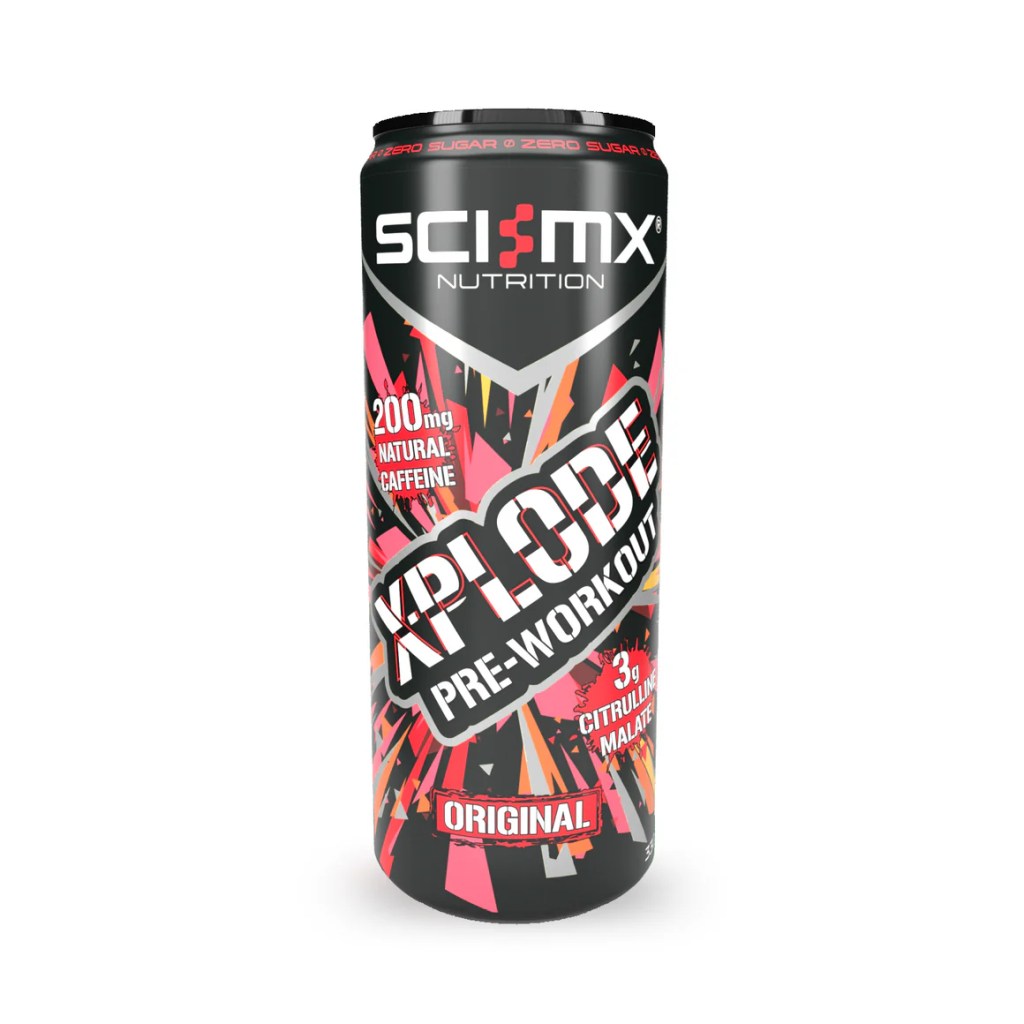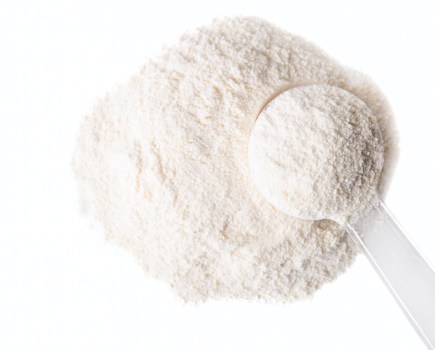This article was paid for by SCI-MX
All you need to know about pre-workout supplements, from what’s in them to timing and safety advice, from the nutrition experts at SCI-MX.
Pre-workout supplements have become increasingly popular among gym-goers and fitness fans, touted for boosting energy, endurance and focus during training sessions. Timing the consumption of these supplements, however, is crucial for maximising their benefits while minimising any potential side effects.
What are pre-workout supplements?
Pre-workouts are available in liquid shots, cans and as powdered supplements. The SCI-MX X-Plode Pre-Workout, for example, is available in 330ml cans or as a powder in 300g tubs. Pre-workouts contain a mixture of ingredients, with caffeine being the main ingredient alongside other compounds such as beta-alanine, creatine, and branched-chain amino acids (BCAAs). The SCI-MX X-Plode Pre-Workout can contains 200mg caffeine and 2g beta-alanine per serving, while the SCI-MX Total Pre-Workout has 200mg caffeine and 2.5g beta-alanine. There are carb- and caffeine-free options out there, though.
What is in pre-workouts?
Pre-workout supplements are designed to help athletes maximise their performance. They typically contain a blend of ingredients, each of which serves a specific purpose:
Carbohydrates: Essential for fuelling workouts and can be found in pre-workout supplements. Fast- acting carbs like maltodextrin are ideal for energising morning workouts.
Caffeine: Boosts alertness and reduces perceived effort during exercise. Caffeine enhances endurance and performance in intense activities, with most pre-workouts containing an optimal 200-300mg dose.
Beta-alanine: Helps delay fatigue by buffering hydrogen ions produced by high-intensity exercise, that increase muscle acidity. It’s particularly effective in activities like sprinting, track cycling, swimming, and resistance training.
Creatine: Shown to improve performance in repeated high-intensity bouts. It also increases muscle mass, strength and power. Supplementation increases muscle phosphocreatine stores, which acts as a fuel for high-intensity activities like resistance training.
Branched-chain amino acids (BCAAs): Can aid muscle growth and reduce soreness. However, they are also readily available through a protein-rich diet, making supplementation optional.
Nitric oxide precursors: Ingredients like L-arginine and L-citrulline increase nitric oxide production, improving blood flow and oxygen delivery to muscles during intense workouts, thereby enhancing performance.

Do pre-workouts improve athletic performance?
Pre-workouts may help to improve performance, which is most likely the result of carbohydrates and caffeine in the mixture. Some of the ingredients may be better suited to certain sports but pre-workouts generally cater for all in some way.
Some of the ingredients in pre-workouts like creatine and beta-alanine need to be taken daily to reap the benefits, so are best used alongside the separate supplements for the days you don’t take your pre-workout.
When is the best time to take pre-workout?
Ideally you would take a pre-workout about 30 minutes before you train to give the ingredients enough time to come into effect. Timing may also reflect the type of training you’re doing. Strength-based activities like weight training – this full-body kettlebell workout, for example – can benefit 30 to 45 minutes beforehand to enhance performance; while for endurance activities such as running or cycling, taking it closer to the start time may help maintain energy levels throughout your session.
Metabolism can also impact on the effectiveness of your pre-workout. For instance, if you metabolise caffeine quickly, consider taking your pre-workout closer to your workout time. If you’re sensitive to caffeine and other stimulants, then you might benefit from taking it earlier in case of gut upset, or choosing a stimulant-free option, or simply reduce the amount you consume.
Are there any side effects with pre-workouts?
Pre-workout supplements are generally safe when taken within the recommended dosage of 200-300mg of caffeine, and are mostly well tolerated, but they can cause side effects in some people. Higher doses of caffeine could lead to increased anxiety, nausea, restlessness, and sleep disruption, particularly in slow caffeine metabolisers or evening exercisers. Additionally, beta-alanine might cause transient paraesthesia, a harmless tingling in the extremities, while sugar alcohols like xylitol and sorbitol in some pre-workouts can trigger digestive issues such as bloating, gas, and diarrhoea. It’s important to trial your supplements to see what works best, as everyone is different.
Timing your pre-workout can significantly influence your training effectiveness and overall experience. By considering factors like the type of exercise you’re doing, your metabolism, and the specific supplement blend you’re using, you can optimise the benefits of pre-workouts to meet your fitness goals.







